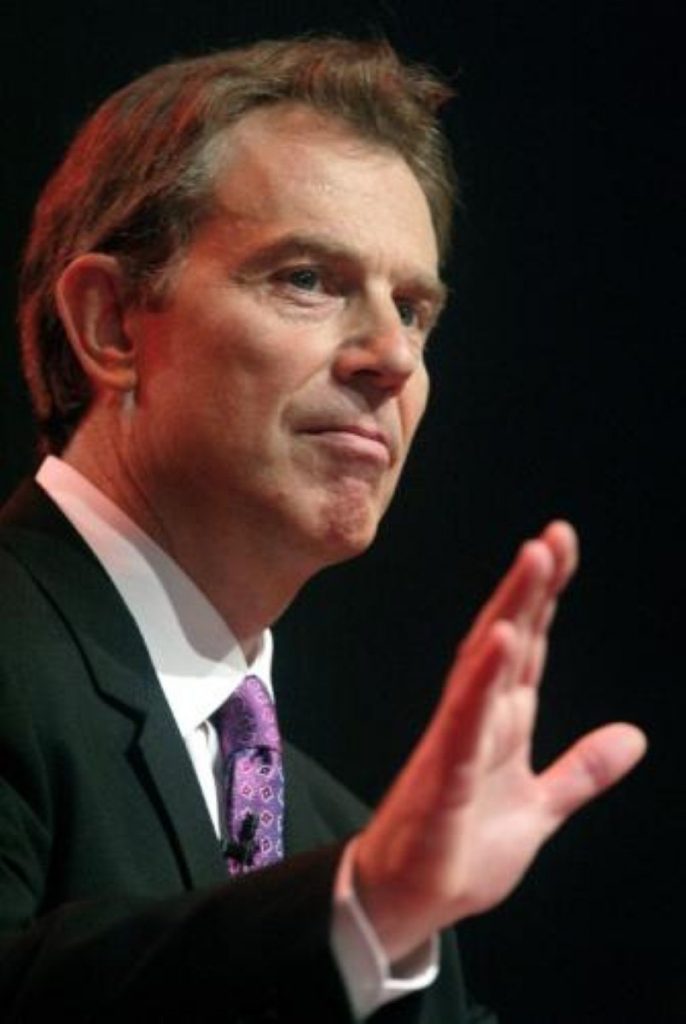Bush and Blair call for democratic Palestinian state
US President George W Bush made it clear that responsibility for progress in the Middle East peace process depends on growth of democracy amongst the Palestinians, at a press conference with Prime Minister Tony Blair this afternoon.
Mr Blair flew to Washington yesterday, becoming the first foreign leader to meet with Mr Bush since his re-election as US President last week.
President Bush began by declaring that he would like to “welcome a statesman and friend back to the White House”.
Describing Mr Blair as “a visionary leader” and “a man of unshakeable convictions”, the US President proclaimed: “America’s alliance with Great Britain has never been stronger.”


Turning to the war on terrorism, Mr Bush praised the recent Afghan presidential elections, calling it “a standing rebuke to cynicism” and “testimony to the power of liberty and hope”.
“Together, we’re serving the same cause in Iraq,” he went on, stating that “substantial progress” is being made in the military operations in Falluja.
“We will continue to stand with our friends and we will finish the job,” the President stated.
On the Middle East peace process, Mr Bush agreed that it is necessary to see “a just and peaceful resolution of the Arab-Israeli conflict, based on two states”.
Welcoming the forthcoming elections in the Palestinian Authority, Mr Bush stated: “We’re committed to the success of these elections and we stand ready to help.”
This must lead to “a democratic, independent and viable state for the Palestinians” and Israel as a “Jewish state”, he went on.
Achieving this requires close partnership between the USA and Europe – “the pillars of the free world” – and Mr Bush insisted: “In my second term I will work to deepen our transatlantic ties [and] to strengthen co-operation between the US and the EU.”
Mr Blair stated that there are three key elements to the UK and USA’s co-operation in the war on terrorism.
The first is to bring democracy to Afghanistan, “which we are doing”, Mr Blair declared.
Secondly, “we have to complete our mission in Iraq”, he continued.
Thirdly, Mr Blair stated that “it is important that we revitalise and reinvigorate the search for a genuine and lasting just peace in the Middle East”. He welcomed Mr Bush’s “clear vision” of a two-state solution, with “two democratic states living side by side in peace”. As such, he insisted that it is vital to support the Palestinian elections – the first opportunity for democracy in that area.
The political, economic and security infrastructure of the Palestinian Authority must be helped to come into being, Mr Blair went on, pledging to “mobilise the international community to do that”.
In this context, Mr Blair stated that Ariel Sharon’s disengagement plan is important and “it is important that we support it”.
“There is every possibility that we can do this with the energy and the will and the recognition that it is only if the two states…are indeed democratic states…that a just peace can be assured,” he concluded.
In response to questions from the assembled press, the President made it clear that he responsibility for peace rests with “the Palestinians people’s willingness to build democracy and Israel’s willingness to help them build democracy”.
Without democracy, there can be no peace, Mr Bush warned, and he suggested that if the Palestinians were not prepared to embrace democracy, the rest of the world could not be expected to help them until they did.
Nevertheless, Mr Bush insisted, “I believe we’ve got a great chance to establish a Palestinian state, and I intend to spend the capital of the United States to establish such a state”.
Asked what would happen if Iraq were to elect a dictator in its January elections, Mr Bush insisted that it is impossible for democratic elections to produce a dictator. He insisted that spreading democracy is essential to secure global stability, because “democracies don’t go to war with each other”.
To those who claim that Arab states cannot be made into democracies, Mr Bush pointed to the examples of Germany and Japan after the Second World War.
The Prime Minister agreed that there can be no long term stability without democratic rights. To that end, the wars in Afghanistan and Iraq could not be brought to an end with the toppling of one regime and its replacement with a new “strongman”, he argued, suggesting that this had been the orthodoxy in the past.
“It’s a struggle, because democracy is hard to bring to countries that have never had it before”, he acknowledged. “We’ve got to have some faith though, in the ability of ordinary people, of decent people to decide their own future,” Mr Blair went on, pointing to the example of the democratisation of Eastern Europe since the end of the Cold War.
A Times journalist asked the President finally if he now owes the UK for its support in the wars, pointing to the perception in some quarters of the Prime Minister as Mr Bush’s “poodle”. Mr Bush replied: “The Prime Minister made a decision – he did it because he wanted to secure the safety of the people of Britain,” adding: “He’s quite capable of making his own mind up”
“These are troubled times, it’s a tough world – what this world needs is steady solid leaders who stand on principal. And that’s what the Prime Minister means to me,” Mr Bush declared.
Mr Blair added: “We’re not fighting the war against terrorism because we are an ally of the United States. We are an ally of the United States because we believe in fighting this war against terrorism.”
On the alliance between the UK and the USA, Mr Blair concluded: “I believe we should be thankful that it is as strong as it is today,” insisting: “I believe passionately it is in the interests of Britain.”

